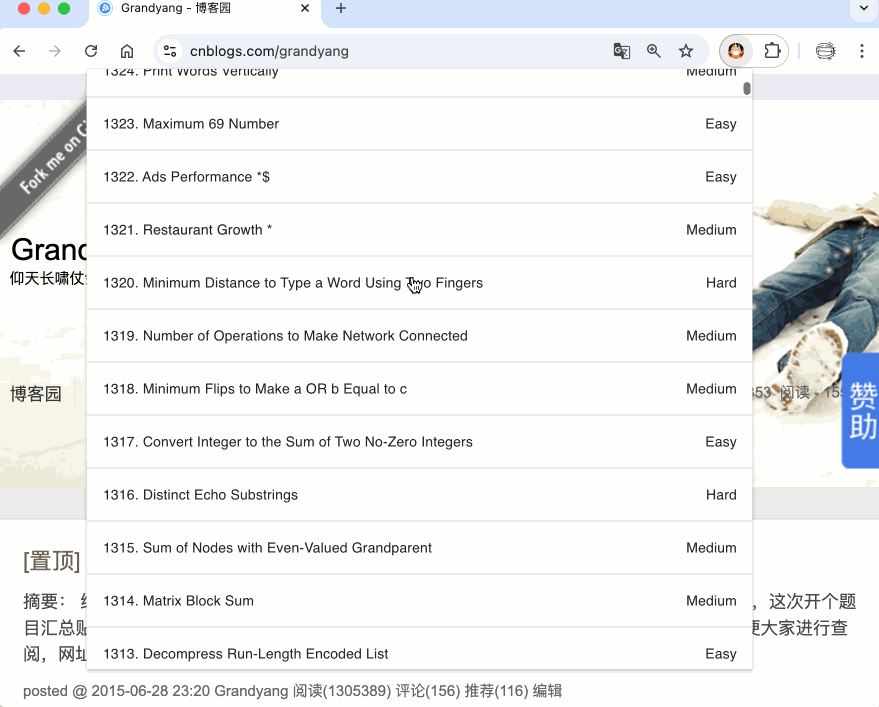CvMat and cv::Mat
CvMat:
typedef struct CvMat { int type; int step; /* for internal use only */ int* refcount; int hdr_refcount; union { uchar* ptr; short* s; int* i; float* fl; double* db; } data; #ifdef __cplusplus union { int rows; int height; }; union { int cols; int width; }; #else int rows; int cols; #endif } CvMat;
cv::Mat
class CV_EXPORTS Mat { public: // constructors Mat(); // constructs matrix of the specified size and type // (_type is CV_8UC1, CV_64FC3, CV_32SC(12) etc.) Mat(int _rows, int _cols, int _type); Mat(Size _size, int _type); // constucts matrix and fills it with the specified value _s. Mat(int _rows, int _cols, int _type, const Scalar& _s); Mat(Size _size, int _type, const Scalar& _s); // copy constructor Mat(const Mat& m); // constructor for matrix headers pointing to user-allocated data Mat(int _rows, int _cols, int _type, void* _data, size_t _step=AUTO_STEP); Mat(Size _size, int _type, void* _data, size_t _step=AUTO_STEP); // creates a matrix header for a part of the bigger matrix Mat(const Mat& m, const Range& rowRange, const Range& colRange); Mat(const Mat& m, const Rect& roi); // converts old-style CvMat to the new matrix; the data is not copied by default Mat(const CvMat* m, bool copyData=false); // converts old-style IplImage to the new matrix; the data is not copied by default Mat(const IplImage* img, bool copyData=false); // builds matrix from std::vector with or without copying the data template<typename _Tp> explicit Mat(const vector<_Tp>& vec, bool copyData=false); // helper constructor to compile matrix expressions Mat(const MatExpr_Base& expr); // destructor - calls release() ~Mat(); // assignment operators Mat& operator = (const Mat& m); Mat& operator = (const MatExpr_Base& expr); operator MatExpr_<Mat, Mat>() const; // returns a new matrix header for the specified row Mat row(int y) const; // returns a new matrix header for the specified column Mat col(int x) const; // ... for the specified row span Mat rowRange(int startrow, int endrow) const; Mat rowRange(const Range& r) const; // ... for the specified column span Mat colRange(int startcol, int endcol) const; Mat colRange(const Range& r) const; // ... for the specified diagonal // (d=0 - the main diagonal, // >0 - a diagonal from the lower half, // <0 - a diagonal from the upper half) Mat diag(int d=0) const; // constructs a square diagonal matrix which main diagonal is vector "d" static Mat diag(const Mat& d); // returns deep copy of the matrix, i.e. the data is copied Mat clone() const; // copies the matrix content to "m". // It calls m.create(this->size(), this->type()). void copyTo( Mat& m ) const; // copies those matrix elements to "m" that are marked with non-zero mask elements. void copyTo( Mat& m, const Mat& mask ) const; // converts matrix to another datatype with optional scalng. See cvConvertScale. void convertTo( Mat& m, int rtype, double alpha=1, double beta=0 ) const; void assignTo( Mat& m, int type=-1 ) const; // sets every matrix element to s Mat& operator = (const Scalar& s); // sets some of the matrix elements to s, according to the mask Mat& setTo(const Scalar& s, const Mat& mask=Mat()); // creates alternative matrix header for the same data, with different // number of channels and/or different number of rows. see cvReshape. Mat reshape(int _cn, int _rows=0) const; // matrix transposition by means of matrix expressions MatExpr_<MatExpr_Op2_<Mat, double, Mat, MatOp_T_<Mat> >, Mat> t() const; // matrix inversion by means of matrix expressions MatExpr_<MatExpr_Op2_<Mat, int, Mat, MatOp_Inv_<Mat> >, Mat> inv(int method=DECOMP_LU) const; MatExpr_<MatExpr_Op4_<Mat, Mat, double, char, Mat, MatOp_MulDiv_<Mat> >, Mat> // per-element matrix multiplication by means of matrix expressions mul(const Mat& m, double scale=1) const; MatExpr_<MatExpr_Op4_<Mat, Mat, double, char, Mat, MatOp_MulDiv_<Mat> >, Mat> mul(const MatExpr_<MatExpr_Op2_<Mat, double, Mat, MatOp_Scale_<Mat> >, Mat>& m, double scale=1) const; MatExpr_<MatExpr_Op4_<Mat, Mat, double, char, Mat, MatOp_MulDiv_<Mat> >, Mat> mul(const MatExpr_<MatExpr_Op2_<Mat, double, Mat, MatOp_DivRS_<Mat> >, Mat>& m, double scale=1) const; // computes cross-product of 2 3D vectors Mat cross(const Mat& m) const; // computes dot-product double dot(const Mat& m) const; // Matlab-style matrix initialization static MatExpr_Initializer zeros(int rows, int cols, int type); static MatExpr_Initializer zeros(Size size, int type); static MatExpr_Initializer ones(int rows, int cols, int type); static MatExpr_Initializer ones(Size size, int type); static MatExpr_Initializer eye(int rows, int cols, int type); static MatExpr_Initializer eye(Size size, int type); // allocates new matrix data unless the matrix already has specified size and type. // previous data is unreferenced if needed. void create(int _rows, int _cols, int _type); void create(Size _size, int _type); // increases the reference counter; use with care to avoid memleaks void addref(); // decreases reference counter; // deallocate the data when reference counter reaches 0. void release(); // locates matrix header within a parent matrix. See below void locateROI( Size& wholeSize, Point& ofs ) const; // moves/resizes the current matrix ROI inside the parent matrix. Mat& adjustROI( int dtop, int dbottom, int dleft, int dright ); // extracts a rectangular sub-matrix // (this is a generalized form of row, rowRange etc.) Mat operator()( Range rowRange, Range colRange ) const; Mat operator()( const Rect& roi ) const; // converts header to CvMat; no data is copied operator CvMat() const; // converts header to IplImage; no data is copied operator IplImage() const; // returns true iff the matrix data is continuous // (i.e. when there are no gaps between successive rows). // similar to CV_IS_MAT_CONT(cvmat->type) bool isContinuous() const; // returns element size in bytes, // similar to CV_ELEM_SIZE(cvmat->type) size_t elemSize() const; // returns the size of element channel in bytes. size_t elemSize1() const; // returns element type, similar to CV_MAT_TYPE(cvmat->type) int type() const; // returns element type, similar to CV_MAT_DEPTH(cvmat->type) int depth() const; // returns element type, similar to CV_MAT_CN(cvmat->type) int channels() const; // returns step/elemSize1() size_t step1() const; // returns matrix size: // width == number of columns, height == number of rows Size size() const; // returns true if matrix data is NULL bool empty() const; // returns pointer to y-th row uchar* ptr(int y=0); const uchar* ptr(int y=0) const; // template version of the above method template<typename _Tp> _Tp* ptr(int y=0); template<typename _Tp> const _Tp* ptr(int y=0) const; // template methods for read-write or read-only element access. // note that _Tp must match the actual matrix type - // the functions do not do any on-fly type conversion template<typename _Tp> _Tp& at(int y, int x); template<typename _Tp> _Tp& at(Point pt); template<typename _Tp> const _Tp& at(int y, int x) const; template<typename _Tp> const _Tp& at(Point pt) const; // template methods for iteration over matrix elements. // the iterators take care of skipping gaps in the end of rows (if any) template<typename _Tp> MatIterator_<_Tp> begin(); template<typename _Tp> MatIterator_<_Tp> end(); template<typename _Tp> MatConstIterator_<_Tp> begin() const; template<typename _Tp> MatConstIterator_<_Tp> end() const; enum { MAGIC_VAL=0x42FF0000, AUTO_STEP=0, CONTINUOUS_FLAG=CV_MAT_CONT_FLAG }; // includes several bit-fields: // * the magic signature // * continuity flag // * depth // * number of channels int flags; // the number of rows and columns int rows, cols; // a distance between successive rows in bytes; includes the gap if any size_t step; // pointer to the data uchar* data; // pointer to the reference counter; // when matrix points to user-allocated data, the pointer is NULL int* refcount; // helper fields used in locateROI and adjustROI uchar* datastart; uchar* dataend; };






 浙公网安备 33010602011771号
浙公网安备 33010602011771号